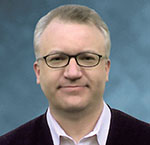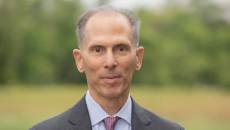Bill Siwicki
When evaluating electronic health record systems to minimize documentation burden, usability is always the big challenge, says one informatics expert. Customization capabilities can help a lot, and so can robust and ongoing training programs.
Nursing and IT
Stephen Ferrara, DNP, president of the American Association of Nurse Practitioners and associate dean for AI at Columbia University School of Nursing, talks the role of artificial intelligence for NPs and discusses an AI/wearables use case.
Ed Mitchell, director, strategic partnerships at Advocate Health, says simplifying technology choices and reducing technical debt can unlock opportunities to enhance patient engagement with improved experience design strategies.
A physician AI expert and co-principal investigator of the landmark Apple Heart Study says the next wave of AI in healthcare will shift from diagnosing existing conditions to forecasting future health risks, paving the way for proactive and preventive care.
One virtual care CEO says telehealth is improving care for rare and complex diseases, helping compounding pharmacists – and continually improving with artificial intelligence.
Glenn Wasson, administrator of analytics at the health system and a doctor of computer science, discusses a dialog between providers and vendors that can highlight sources of risk that must be understood to govern AI within an enterprise.
Nursing and IT
The health system has reduced RN turnover by seven percentage points; the RN retention rate is back to pre-pandemic 95%. This saves RN replacement costs in a highly competitive market. Further, the platform helps leaders follow best practices.
Dr. Eyal Zimlichman, chief innovation and transformation officer at Israel's Sheba Medical Center, says there will be much progress with these technologies – and health system IT leaders must be ready to adapt.
Dr. Michael S. Barr, a veteran and a healthcare consultant, explains how SBAR – Situation, Background, Assessment and Recommendation – will bring C-level health system execs onboard for strategic artificial intelligence investments.
Impower therapists love the ambient listening technology, its COO reports. Artificial intelligence is helping them produce more clinically detailed notes, better comply with documentation submission and be more present with clients.










